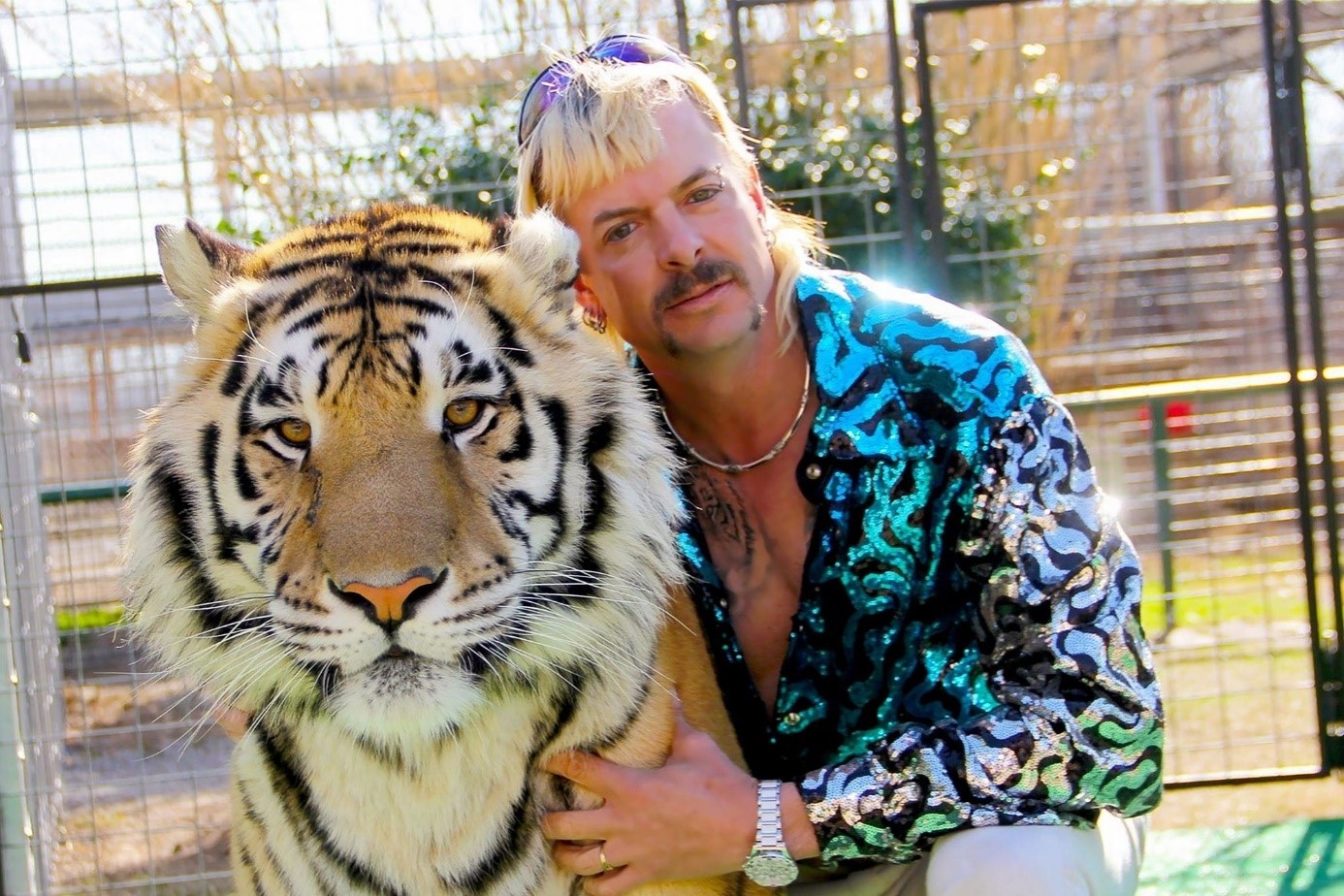A question inspired by Tiger King.
Thank you, Ela Özcan, for a very important question.
The problem of responsibility in broadcasting is pretty complex. Since Ela’s question was inspired by Tiger King, I would like to analyze it in terms of the (mis)representation of Carole Baskin in the series.
One of the most specific controversies in Tiger King was that Carole Baskin was represented as part of the pretty shady group of big cat collectors. However, it seems that she may in fact be a sincere conservationist. The creators made her just another part of the controversial cast by highlighting the mysterious disappearance of her husband in ’97 and suggesting her possible involvement. There was therefore a false symmetry between her and Joe Exotic. Although they both waged long and eventful vendettas against each other, Exotic certainly came off worse: he lost all legal cases and is currently a federal convict for hiring a hitman to kill Baskin (and for animal abuse).It can also be argued that Carole is a preservationist, because her sanctuary is run by a non-profit organization; Exotic, on the other hand, ran his zoo as a business and as a means to promote his persona.
Who is responsible for this misrepresentation? And is it even morally wrong? The series creators never claimed that Carole murdered her husband; they only broadcast her competitors’ insinuations and presented some disputable circumstances. I believe (though I am no expert on US law) that she has no legal grounds to sue the creators, since they did not present any untrue statements. But, thanks to this narrative, her serious concerns about the well-being of cats in the industry get lost in the drama. And, unlike Netflix, Carole does not have a huge platform to present her counter-narrative.
One could argue that since Tiger King does not falsify any facts, how the narrative is interpreted is up to the viewers. If they cannot see the difference between speculation and fact, then that is their problem. However, I believe that this problem will be exacerbated by the production format. Tiger King – like most true-crime series and “history” shows about ancient aliens – is a form of infotainment. Although it presents true stories, it is not an impartial depiction of events, but rather aims to be interesting. People who watch Tiger King do not want to critically assess the presented content; they are just looking for a fun show to watch – and Tiger King is fun. Moreover, speculations about Baskin’s past are much more interesting than an investigation into the legal system concerning the well-being of captive animals in the US. The creators are responsible for choosing this format, instead of a more informative (and less fun) documentary. However, the show would never have been created if viewers did not want infotainment, so perhaps it is their responsibility after all? Now we delve into deeper issue: Do products respond to existing demand, or do they create it? Did we want Tiger King before it was created? I believe that while there is indeed some general demand for infotainment (at least nowadays), there was never a specific demand for Tiger King. It must be possible to create an engaging and fun documentary without distorting the truth.
What do you think? Is it ok to tune the truth to make the story more interesting? Let us know in the comments.
And, as always, if you have a question for the Armchair Philosophers, don’t hesitate to get in touch. You could send us a message or fill in this form.
Image: Joe Exotic from Netflix’s Tiger King (credit)
I have studied philosophy since 2010 at Adam Mickiewicz University in Poznań (I do not like moving). Currently, I am trying really hard to finish my Ph.D. thesis concerning the concept of the technical object in contemporary continental philosophy. I mostly work in the field of philosophy of technology, poststructuralism, critical theory, and posthumanism. Personally, I am a big fan of relational ontologies. I believe that the "essence" of things is only a consequence of their relations to other entities. I haven't published much in English, but check my Academia profile or contact me if you are interested in my research.

